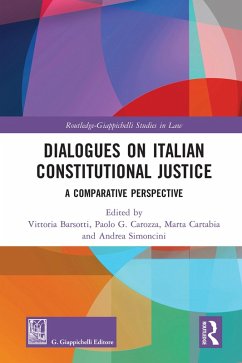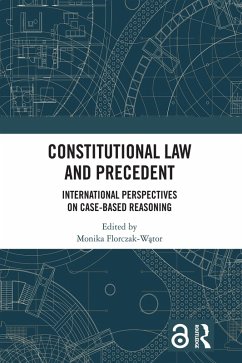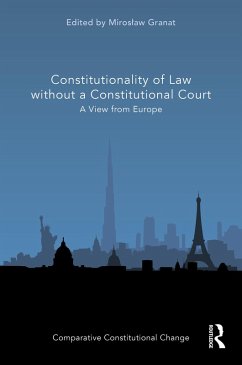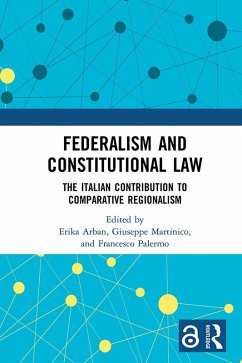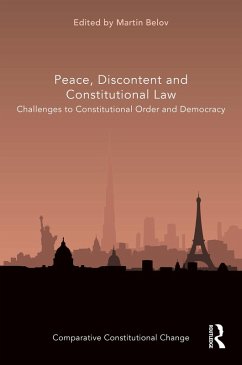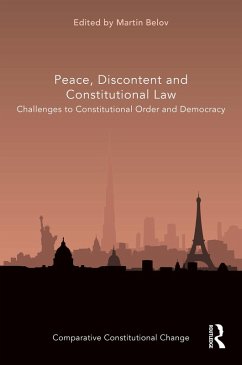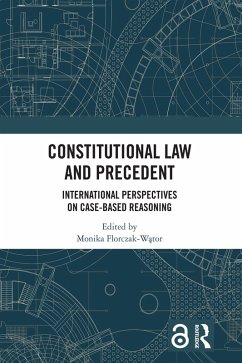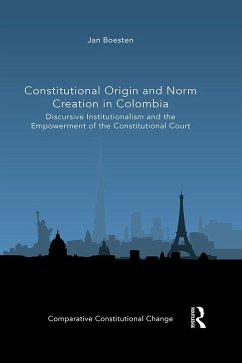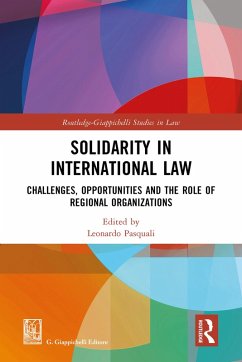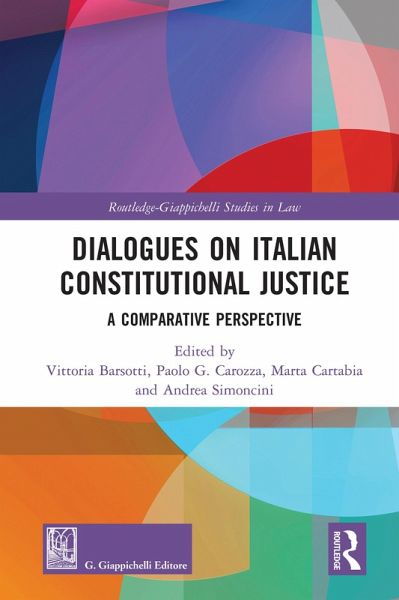
Dialogues on Italian Constitutional Justice (eBook, PDF)
A Comparative Perspective
Redaktion: Barsotti, Vittoria; Simoncini, Andrea; Cartabia, Marta; Carozza, Paolo
Versandkostenfrei!
Sofort per Download lieferbar
39,95 €
inkl. MwSt.
Weitere Ausgaben:

PAYBACK Punkte
20 °P sammeln!
This collection adopts a distinctive method and structure to introduce the work of Italian constitutional law scholars into the Anglophone dialogue while also bringing a number of prominent non-Italian constitutional law scholars to study and write about constitutional justice in a global context.The work presents six distinct areas of particular interest from a comparative constitutional perspective: first, the role of legal scholarship in the work of constitutional courts; second, structures and processes that contribute to more "open" or "closed" styles of constitutional adjudication; third...
This collection adopts a distinctive method and structure to introduce the work of Italian constitutional law scholars into the Anglophone dialogue while also bringing a number of prominent non-Italian constitutional law scholars to study and write about constitutional justice in a global context.
The work presents six distinct areas of particular interest from a comparative constitutional perspective: first, the role of legal scholarship in the work of constitutional courts; second, structures and processes that contribute to more "open" or "closed" styles of constitutional adjudication; third, pros and cons of collegiality in the work of constitutional courts; fourth, forms of access by individuals to constitutional justice; fifth, methods of constitutional interpretation; and sixth, the relationship between national constitutional adjudication and the transnational context. In each of these six areas, the volume sets up a new and genuine constitutional dialogue between an Italian scholar presenting a discussion and critical assessment of the specific topic, and a non-Italian scholar who responds elaborating the issue as seen from constitutional law beyond the Italian system. The resulting six such dialogues thus provide a dynamic, in-depth, multidimensional, national and transnational/comparative examination of these areas in which the `Italian style' of constitutional adjudication has a distinctive contribution to make to comparative constitutional law in general.
Fostering a deeper knowledge of the Italian Constitutional Court within the comparative global space and advancing a creative and fruitful methodological approach, the book will be fascinating reading for academics and researchers in comparative constitutional law.
The work presents six distinct areas of particular interest from a comparative constitutional perspective: first, the role of legal scholarship in the work of constitutional courts; second, structures and processes that contribute to more "open" or "closed" styles of constitutional adjudication; third, pros and cons of collegiality in the work of constitutional courts; fourth, forms of access by individuals to constitutional justice; fifth, methods of constitutional interpretation; and sixth, the relationship between national constitutional adjudication and the transnational context. In each of these six areas, the volume sets up a new and genuine constitutional dialogue between an Italian scholar presenting a discussion and critical assessment of the specific topic, and a non-Italian scholar who responds elaborating the issue as seen from constitutional law beyond the Italian system. The resulting six such dialogues thus provide a dynamic, in-depth, multidimensional, national and transnational/comparative examination of these areas in which the `Italian style' of constitutional adjudication has a distinctive contribution to make to comparative constitutional law in general.
Fostering a deeper knowledge of the Italian Constitutional Court within the comparative global space and advancing a creative and fruitful methodological approach, the book will be fascinating reading for academics and researchers in comparative constitutional law.
Dieser Download kann aus rechtlichen Gründen nur mit Rechnungsadresse in A, B, BG, CY, CZ, D, DK, EW, E, FIN, F, GR, HR, H, IRL, I, LT, L, LR, M, NL, PL, P, R, S, SLO, SK ausgeliefert werden.




